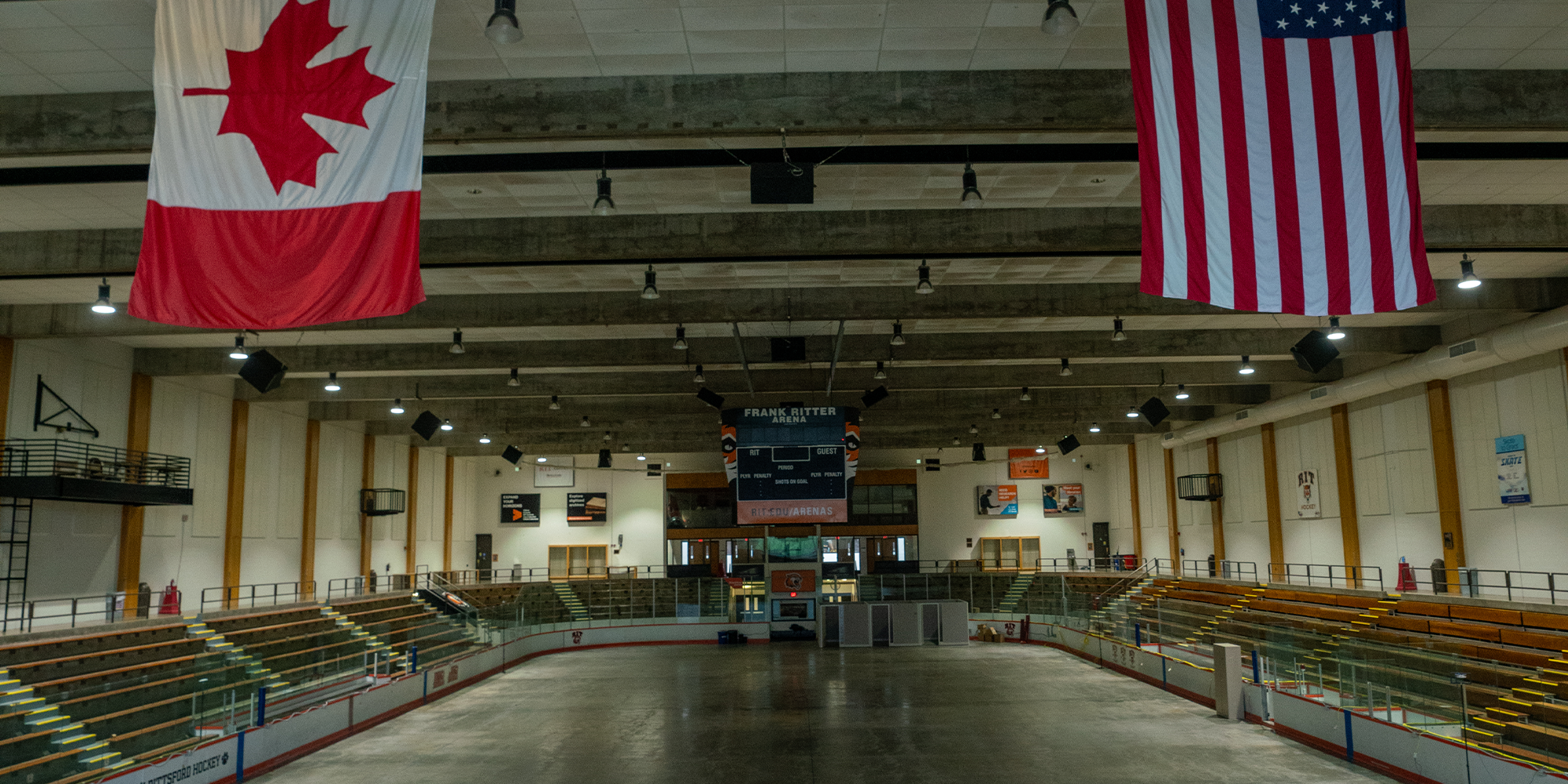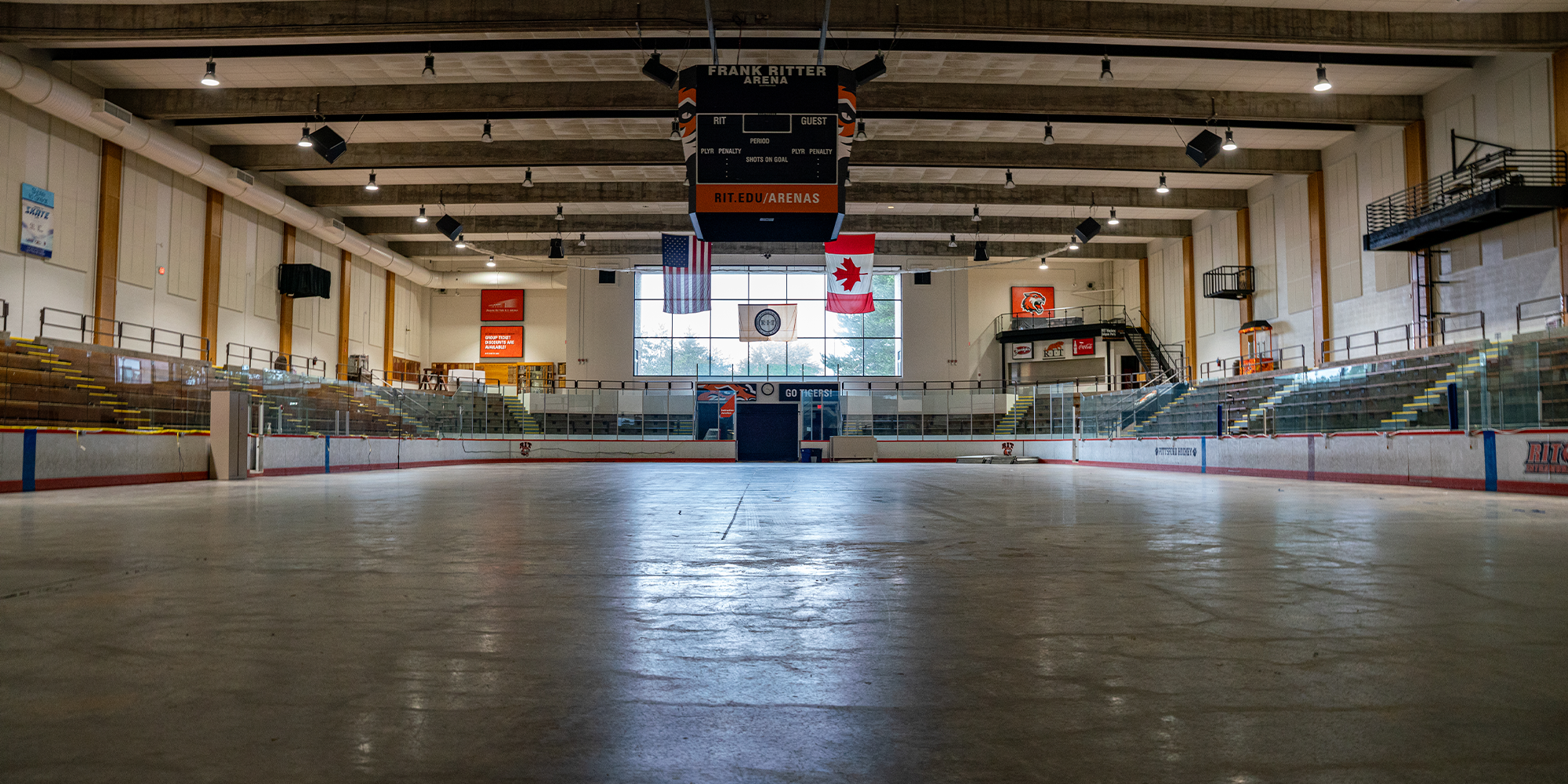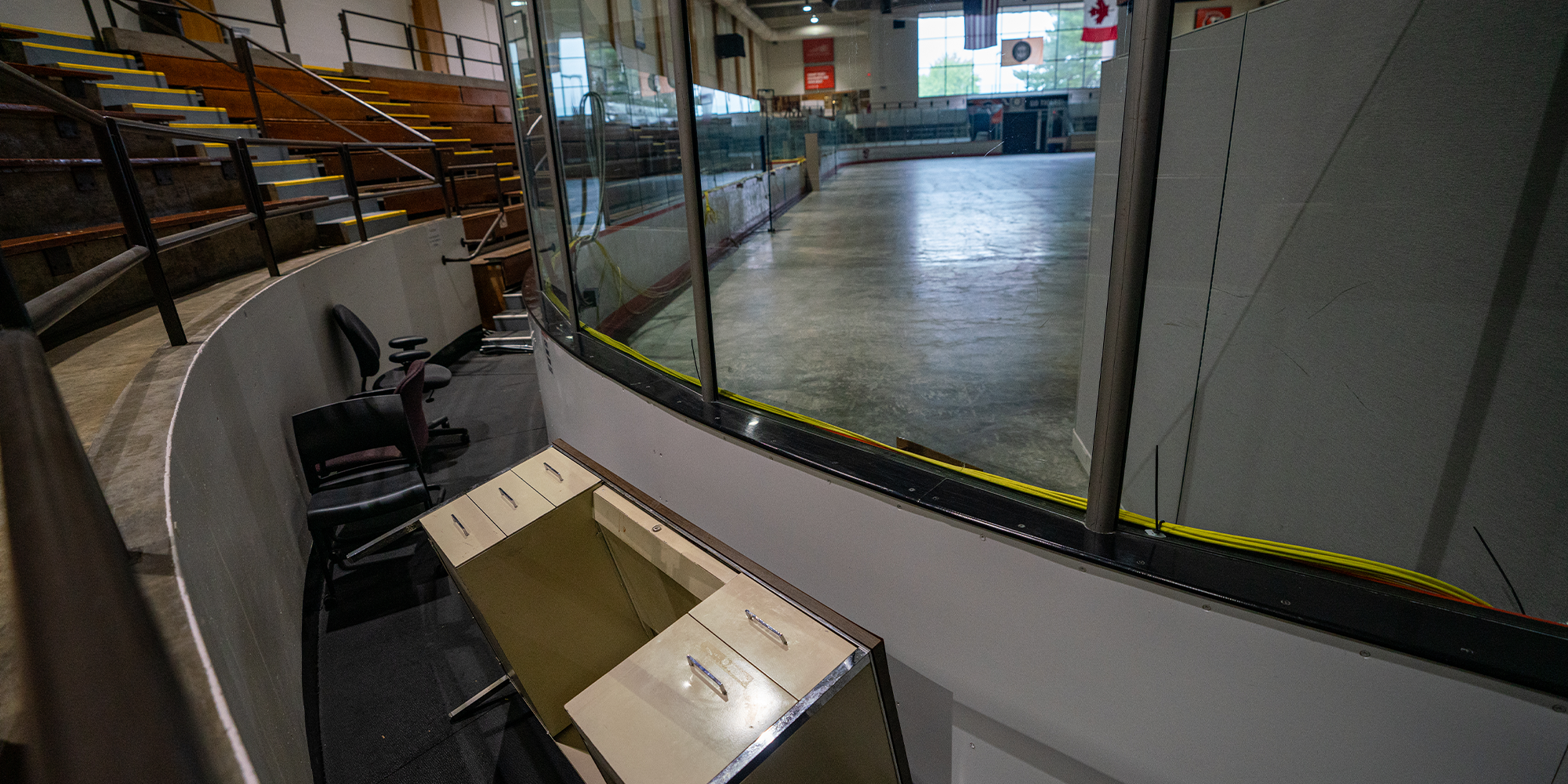Amidst the preparation for construction on the Student Hall for Exploration and Development (SHED) during the summer of 2021, the contents of Wallace Library were temporarily transferred to Frank Ritter Ice Arena (RIA), and aptly named "Wallace on Ice." Over two years later in September 2023, with construction slowing down and the reopening of Wallace Library, there has been anticipation among the community to discover what will happen to the newly vacated RIA.
Although many in the RIT community might still be hoping for RIA to be used as an event space, recreation center or one of numerous other possibilities, a decision has already been made.
Associate Athletic Director Jeff Siegel introduces the new Frank Ritter indoor turf field project.
“We have goals to turf [Ritter] and have it be an indoor athletic venue,” said Siegel. “We are working with FMS to get that accomplished.”
“We have goals to turf [Ritter] and have it be an indoor athletic venue."
As the indoor field project was pitched, it was decided that the athletic space will not be restricted to certain sports or groups. This may be an appealing feature of the new space for many recreational athletes.
“We anticipate intramurals getting time in [Ritter], club sports getting time in [Ritter],” said Siegel. “It will operate similar to the rest of our venues.”
Preparation for the new indoor turf field will be a long process due to the condition of the building and the need for a new permit.
“The biggest thing we are dealing with right now is that the building is permitted to be a temporary library,” said Siegel.
Before RIA became "Wallace on Ice" it had the correct permits to be an athletic facility. When the library was temporarily housed in RIA, separate permits were required to allow the space to be used for a different purpose. Since then, RIA has not been recognized as an athletic facility, and new permits will have to be acquired to reinstate that title before the project is allowed to move forward.
While many expected RIA to be turned back into an ice rink, relevant features of the building have issues that would be expensive hurdles to overcome, which ultimately eliminated this possibility.
“Ritter is old,” explained Siegel. “I think there was fear that these compressors wouldn’t function properly and the cost to get it to be a functioning hockey rink outweighed the positive impact on the campus.”
"The cost to get it to be a functioning hockey rink outweighed the positive impact on the campus.”
Regardless of the functionality of RIA as a facility, Siegel expressed that the decision to turn the building into an indoor turf field was made with the needs of most RIT athletes in mind. While many people within the RIT hockey community might be disappointed in this decision, other sports are believed to be positively impacted by the future presence of the space.
With yet another construction project added to the pile, the question is: was it the right decision?










